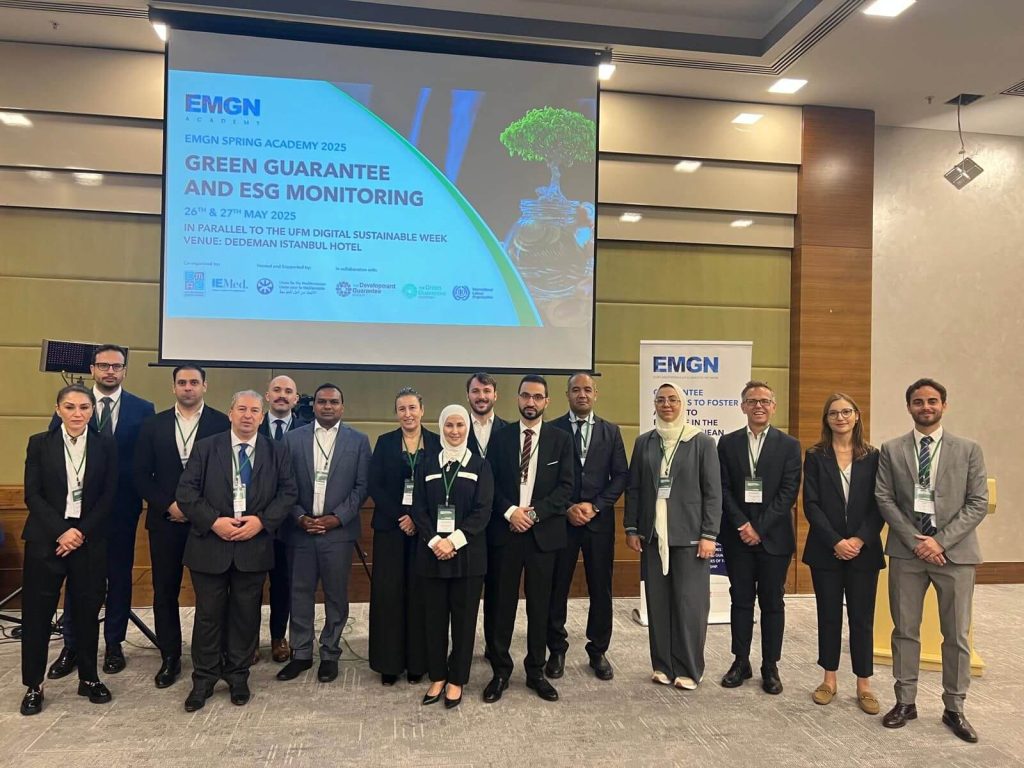
Posted on June 2, 2025
The Spring Academy 2025 of the Euro-Mediterranean Guarantee Network (EMGN), themed “Green Guarantee and ESG Monitoring”, took place in Istanbul, Türkiye, on May 26th and 27th, 2025.
The event was organised by the Euro-Mediterranean Guarantee Network (EMGN), led by the Euro-Mediterranean Economists Association (EMEA) and the European Institute of the Mediterranean (IEMed), in collaboration with the Development Guarantee Group, the Green Guarantee Company, and the International Labour Organization (ILO). It was hosted by the Union for the Mediterranean (UfM) as a side event to the Sustainable Digital Week.
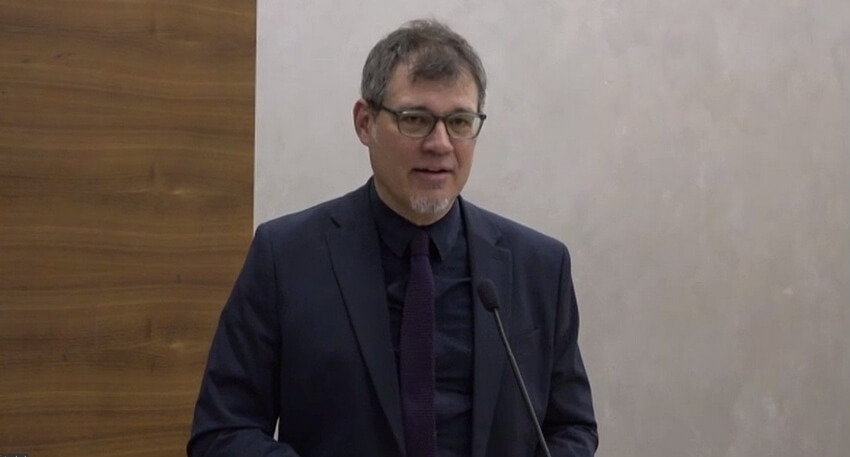
The Academy kicked off in Istanbul with opening remarks by Mr. Joan Borrell, Deputy Secretary General of the Union for the Mediterranean (UfM). This was followed by a welcome speech by Prof. Rym Ayadi, Founder and President of the Euro-Mediterranean Economists Association (EMEA), and Professor at Bayes Business School, City St George’s, University of London, on “The Role of Credit Guarantees to Finance Adaptation to Climate Change in the Mediterranean”.
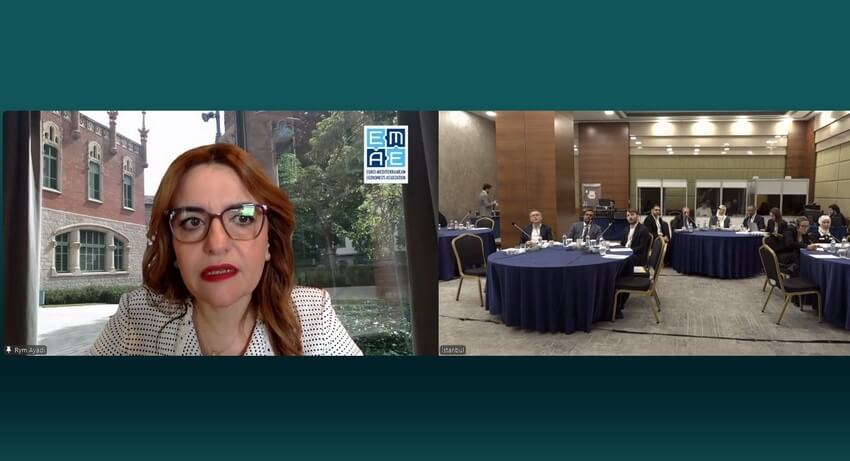
Prof. Ayadi underlined that:
“Credit guarantee schemes are essential levers to unlock private investment and bridge the financing gap in climate adaptation and mitigation. By effectively managing risk, aligning incentives, and enhancing ESG performance, they empower Mediterranean communities and businesses to build resilience, drive sustainable growth, and collectively accelerate the journey towards achieving the Sustainable Development Goals”
This edition of the Academy brought together EMGN members and guest institutions from Finland and Kosovo to share operational experiences and innovative practices in green product design and ESG integration. Over two days, participants engaged in peer-to-peer exchanges, case presentations, and expert-led sessions focused on how Credit Guarantee Institutions (CGIs) can play a pivotal role in driving the green transition.
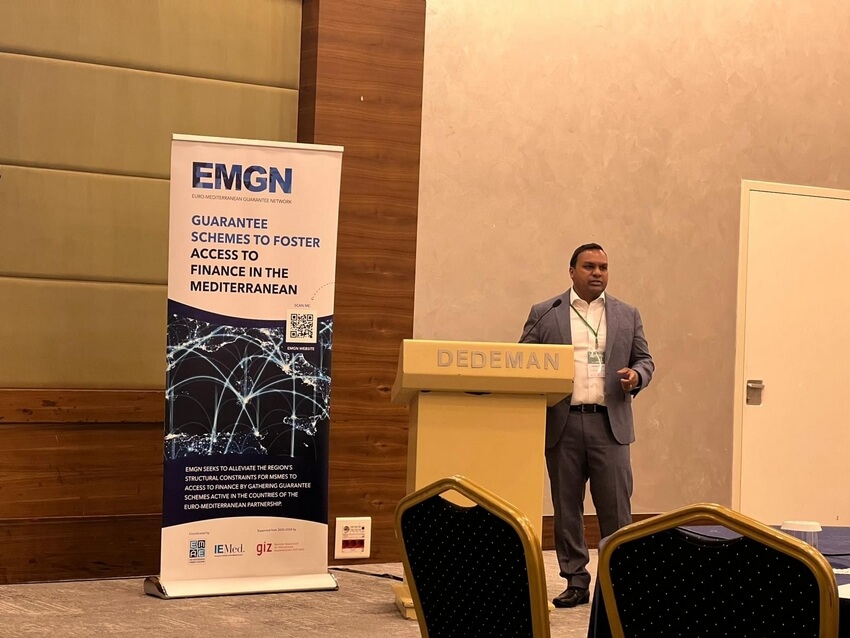
Day 1 centred on Green Guarantee Schemes in Action, highlighting practical approaches to product development, impact measurement, and collaborative financing models.
Day 2 focused on ESG Monitoring and Integration, exploring tools and strategies to embed ESG principles into the institutional frameworks, risk management, and reporting systems of CGIs.
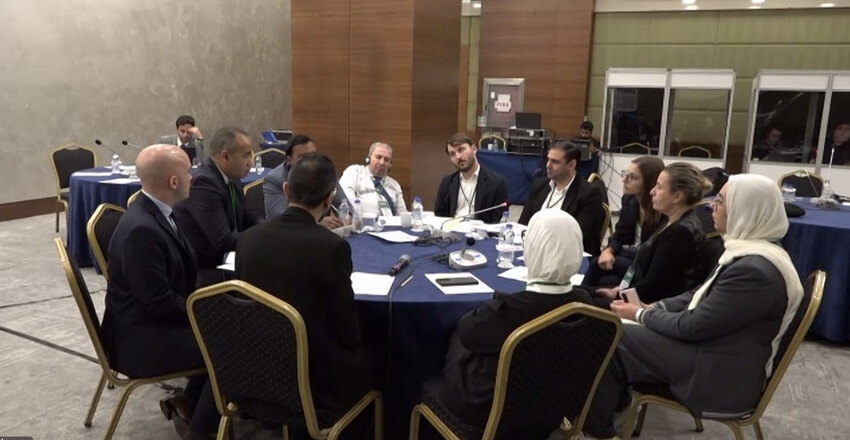
Sessions featured insights from leading experts representing the Green Guarantee Group, Development Guarantee Group, Green Guarantee Company, KPMG Ghana, and the ILO. The Academy underscored the importance of aligning guarantee schemes with international sustainability standards and increasing transparency in environmental, social, and governance dimensions.
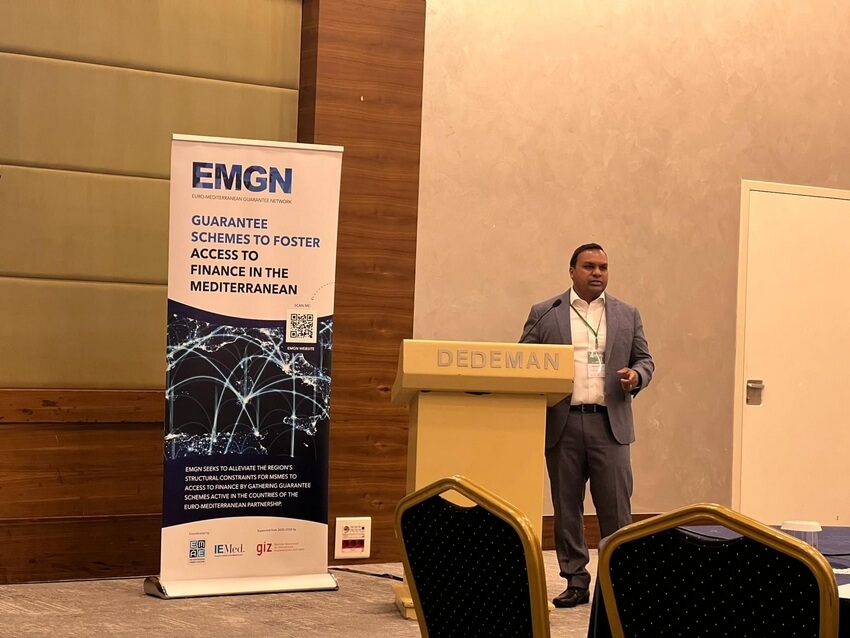
On-site were present 16 Members of EMGN, external participants, and associates, including representatives for Tamwilcom Morocco, BPIfrance, JLGC Jordan, AECM Brussels, Kafalah Saudi Arabia, HDB Greece, CGCI Algeria, and guest speakers from KGF Kosovo, Development Guarantee Group. The event was organized by Christine de Visser, Project Manager (EMEA) and Nicolas Medrano, program officer (IEMed). Online where connected colleagues from the YLG Yemen Loan Guarantee, CGC Egypt, and ‘Sotugar’ Tunisia.
The event concluded with the presentation of participation certificates by Christine de Visser, Project Manager at the Euro-Mediterranean Economists Association (EMEA) and Said Charma, Senior Economic Advisor at the Union for the Mediterranean.
Highlights:
- Guarantee institutions have the potential to play a pivotal role in unlocking climate finance by de-risking green investments, attracting private sector capital, and enabling the flow of funding toward sustainable projects, especially in emerging and developing economies where financing gaps are significant.
- The Green Guarantee Group’s mission focuses on scaling innovative, climate-aligned solutions and supporting ESG integration and risk-sharing ahead of COP30.
- A good practice from Kosovo, the Kosovo Credit Guarantee Fund showcased a green guarantee product supporting MSME investments in energy efficiency (EE) and renewable energy (RE), offering up to 70% coverage and favorable fees, along with strong non-financial support through staff training and the “Esave” platform for managing and tracking green loans.
- A good practice from Finland, showcased Finnvera’s approach to supporting the green transition by embedding climate and environmental criteria into its loan operations, offering practical insights on project screening and aligning finance with sustainability goals.
- A key highlight from the academy was the introduction of SAFE—Scaling Alternative Finance for Entrepreneurs—a pioneering funding initiative supported by Germany and the EU, offering investment-grade guarantees to alternative finance institutions to expand green and inclusive finance for MSMEs, especially women-led and green-focused businesses across MENA and beyond.
- Morocco’s Green Invest initiative, showcased Tamwilcom’s blended approach of guarantees and joint financing to support the green economy, including the integration of carbon footprint requirements for all guaranteed projects to drive sustainable investment.
- A key highlight from Jordan Loan Guarantee Company was its Green Finance Guarantee Program, designed to reduce credit risk and boost green lending to MSMEs, fully aligned with the Central Bank of Jordan’s Green Finance Strategy, and supported through close collaboration with banks to promote sustainable investments and environmental standards in lending. The program offers up to 85% guarantee coverage for projects in Amman, 90% for projects outside Amman or led by women.
- The Environment Fund Initiative showcased the power of collaboration between different actors, with Kafalah and the Saudi Environment Fund working together to support green investments. The program also includes a strong client incentive: good clients who repay their loans without any delayed payments qualify for the Environmental Fund to cover 100% of the interest paid.
- Core ESG actions for guarantee institutions include: strengthening ESG governance by appointing senior focal points and embedding ESG in board strategy; developing a clear ESG policy aligned with national and international standards; designing ESG-linked guarantee products with incentives; integrating ESG criteria into risk appraisal and due diligence; building staff and partner capacity through training and technical support; and establishing robust ESG monitoring, reporting, and disclosure practices.
- Bpifrance’s Climate Plan, launched in 2020 aims to accelerate the green transition, support renewable energy, and finance greentech innovation, while also playing a crucial advisory role to public authorities on ESG and CSR through data, expertise, and policy engagement.
- Key challenges in promoting green finance, include low MSME awareness, limited financial incentives, and insufficient bank staff capacity.
- Credit Guarantee Schemes can embed ESG principles through aligned policies, ESG-integrated guarantee design, risk-based application appraisal, and ongoing monitoring and evaluation. Drawing on Yemen’s experience, the session emphasized adaptive, context-sensitive approaches for responsible finance, especially in fragile and conflict-affected markets.
- The International Labour Organization, provided Credit Guarantee Institutions with practical guidance on integrating social factors—such as labour rights, job quality, and inclusivity—into their impact management, reinforcing the critical role of the social dimension in sustainable and inclusive finance.
Link to Prof. Ayadi’s statement
Link to Prof. Ayadi’s speech video


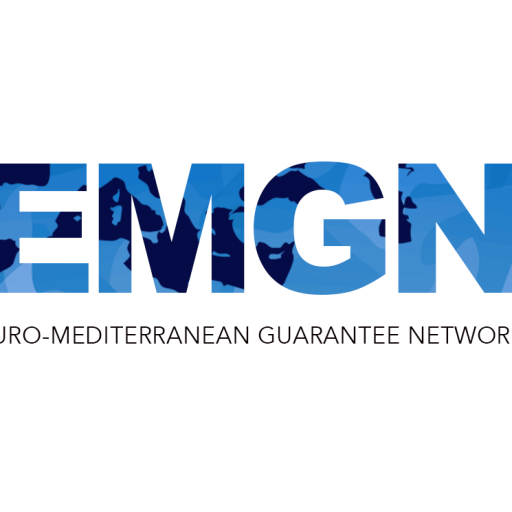
About The Author: Emgn_admin
More posts by emgn_admin